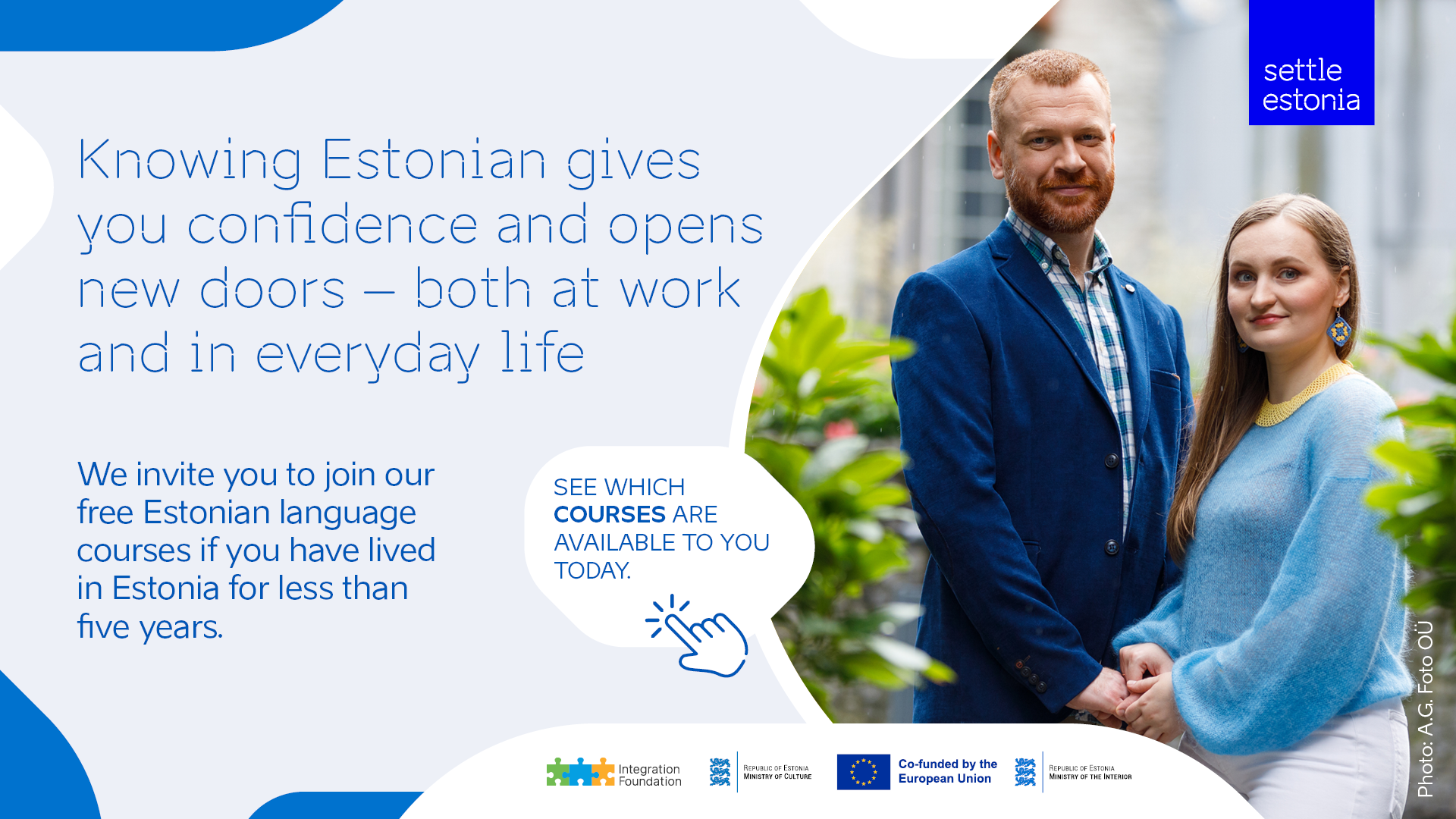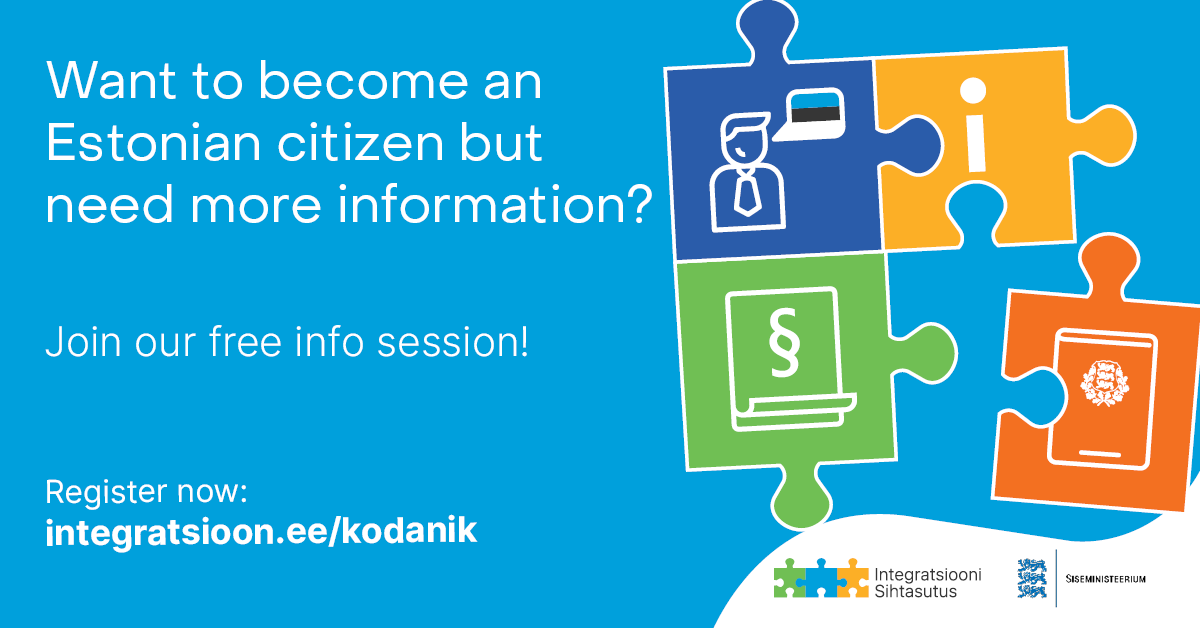
As part of the Settle in Estonia adaptation programme, this year’s last Estonian language courses for beneficiaries of international protection at level A1 will start in August and September. The courses are free of charge and financed from the state budget.
The courses take place both in person in Tallinn and online.
You can learn about the courses on offer and sign up for the one that suits you best in the online environment https://www.settleinestonia.ee/login. You can sign up as long as there are places available for the courses on offer.
Please note that it is compulsory for beneficiaries of international protection to complete Estonian language courses at levels A1, A2, and B1 and adaptation training.
If you have any questions regarding the Estonian language courses or registration, please contact us by email: info@settleinestonia.ee.
How to register for the courses and trainings of the adaptation programme?
- You can register for adaptation trainings and Estonian language courses once you have received a notification letter from the Police and Border Guard Board about the possibility to participate in the adaptation programme.
- For more information on the training courses of the adaptation programme, visit settleinestonia.ee/login. To use the self-service environment, you need to create an account using an ID card, Smart-ID, or Mobile ID.
- On your personal account, you can see all the courses suitable for you that are open for registration and have available spots. You can choose the course that suits you best and register by clicking on the ‘Register’ button next to the course.
- When you log in, you will see a list on your personal page of the Estonian language courses and trainings you can participate in. You can choose the course that suits you best and sign up for it. Once you have registered, you will receive a confirmation and other details from the provider of the course a few days before the start of the course.

